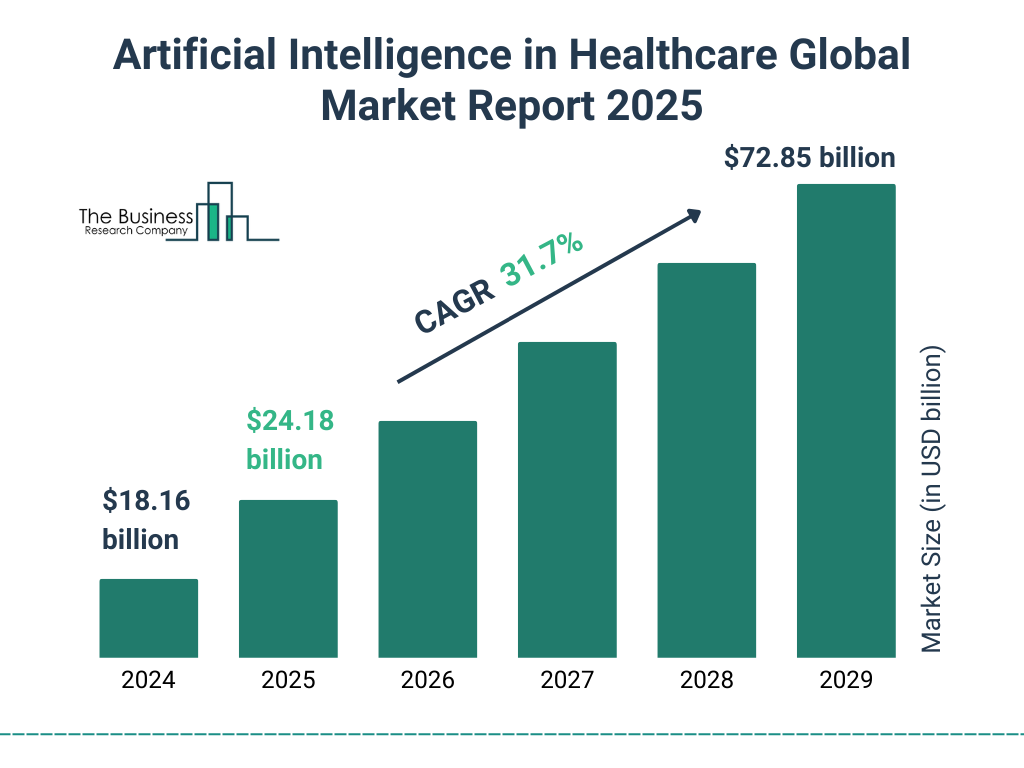The future of healthcare isn’t just coming — it’s accelerating.
According to a recent market report from The Business Research Company, the global Artificial Intelligence (AI) in Healthcare market is on track to grow from $18.16 billion in 2024 to an astonishing $72.85 billion by 2029. That’s a staggering Compound Annual Growth Rate (CAGR) of 31.7% over five years.
But what does this really mean for healthcare professionals, administrators, tech innovators, and patients?
💡 Why AI in Healthcare Is Growing So Rapidly
This explosive growth isn’t happening in a vacuum. It’s the result of a convergence of pressing challenges and transformative technologies:
- Workforce burnout and staff shortages are driving the need for automation in clinical documentation, administrative tasks, and triage.
- Advancements in machine learning and natural language processing (NLP) are enabling systems to “understand” and act on clinical data faster than ever.
- Patient expectations are evolving, with demand for more personalized, digital, and convenient care.
- Health systems are under pressure to reduce costs while improving outcomes — and AI is proving to be a powerful lever for doing both.
From AI-powered radiology and diagnostics to virtual assistants and predictive analytics, the applications are endless — and the business case is only getting stronger.
🧠 Real-World Impact: From the Exam Room to the Boardroom
AI is no longer just a buzzword — it’s becoming an integral part of everyday operations for forward-thinking healthcare organizations. Some of the most impactful use cases include:
- Clinical decision support systems (CDSS) that help doctors make faster, evidence-based choices.
- Automated medical transcription and EHR documentation that reduce administrative burden on clinicians.
- Chatbots and virtual health assistants that support patient engagement and chronic disease management.
- Predictive analytics for population health and hospital resource planning.
- Revenue cycle management (RCM) tools that minimize claim denials and optimize reimbursements.
And this is just the beginning.
🔍 What This Means for Healthcare Leaders
If you’re in healthcare and not yet exploring or implementing AI solutions, now is the time.
Waiting too long could mean:
- Falling behind competitors who are already leveraging AI to improve efficiency and patient satisfaction.
- Losing talent to organizations that use technology to reduce burnout and streamline workflows.
- Missing out on significant cost savings and new revenue opportunities.
💬 Let’s Talk
Are you already using AI in your organization? What’s working? What’s still holding you back?
Whether you’re a healthcare provider, system administrator, vendor, or innovator — the AI revolution is here. And those who embrace it early will be best positioned to lead the transformation of care.




